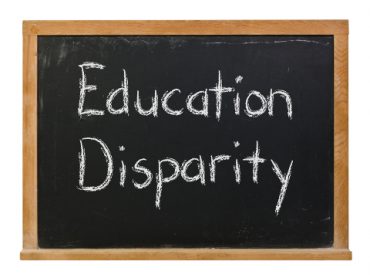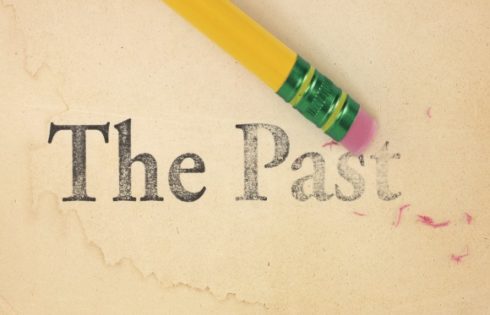
The US Department of Education is investigating the Richmond, Virginia Public Schools at the behest of advocacy groups who allege the district’s discipline policies unfairly penalize minority students.
The DoE’s Office for Civil Rights will be looking into, among other disparities, why “Black students with disabilities were nearly 13 times more likely than white students without disabilities to receive short-term suspensions.”
The Richmond Times-Dispatch reports the 28-page complaint “detailed inconsistencies arising from subjective interpretations of a student code of conduct described as ‘a disorganized and internally inconsistent assortment of narrative, lists and charts.’”
The rest of the story is one we’ve seen and heard before: more out-of-proportion racial statistics designed to make the casual observer go “Whoa!” as well as academics who, naturally, imply that racism is at the heart of the matter.
Thankfully, Jerome Woehrle at Liberty Unyielding is there to cut through much of the innuendo.
He asks, for example, what is with the comparison of black students with disabilities to white students without them? Students in the former category (of whatever color), especially emotional disabilities, are more likely to be disruptive in class, intentionally or otherwise.
More:
Perhaps realizing that they had no evidence of actual racism, the groups base their discrimination complaint on “disparate impact” — the idea that even colorblind policies amount to discrimination when they impact more minorities than whites. The Richmond Public Schools have lots of black teachers and staff, so suggesting that these suspensions are due to racism or ill-will towards black people would stretch the bounds of credulity. The complaint seeks to compel the Richmond Public Schools to make discipline laxer by reducing suspensions and using “restorative justice,” and by curbing what they view as overly subjective policies regarding suspensions. This push will backfire on students, most of all on black students. And it will likely lead to lawsuits against the Richmond Public Schools by teachers and students who have to put up with abuse from students who are no longer suspended, but left in the classroom.
Black students are suspended at higher rates than white students in Richmond. But that hardly is a sign of racism. As one commenter put it, “the system is 90% black. There are hardly enough white kids to make a valid comparison. The white kids who are there are from high earning homes concentrated around Fox and Mary Munford.” The appeals court in Richmond has rejected the idea that racial disparities in suspension rates show discrimination. Faced with “statistics [that] show that of the 13,206 students disciplined” in a North Carolina school district “from 1996–98, sixty-six percent were African–American,” it said, this “‘disparity does not, by itself, constitute discrimination,’” and was “no evidence” that the school district “targets African–American students for discipline.” (See Belk v. Charlotte-Mecklenburg Board of Education, 269 F.3d 305, 332 (4th Cir. 2001) (en banc)).
MORE: ‘Liberal discipline policies’ are making schools dangerous
Such disparities may not even amount to unintentional discrimination of the “disparate impact” variety. Even “disparate impact” complaints are supposed to be based on statistical findings that control “for various factors that one would expect to be relevant to the likelihood of disciplinary action.” (See Caridad v. Metro-North Commuter Railroad Co., 191 F.3d 283, 292-93 (2d Cir. 1999); see also Ward’s Cove Packing Co. v. Atonio, 490 U.S. 642 (1989)). Factors linked to student misbehavior and disciplinary action include, but are not limited to, living in poverty, or coming from a single-parent household, challenges that disproportionately confront black students. Student misconduct rates are much higher in schools where poverty is common, especially abuse aimed at teachers: verbal abuse aimed at teachers is five times higher in such schools.
Consider the complaints about subjectivity: When discipline was much more objective — like with so-called “zero tolerance” policies which were supposed to ensure fairness — people complained that they were racially biased because of the resultant disparate racial stats.
Piggybacking, too, on Woehrle’s point about the demographics of the district (especially staff), teachers as a whole are significantly more liberal than employees in other professions. Are we to believe that these (liberal) teachers in Richmond — and across the country since Richmond’s discipline “predicament” is hardly unique — are racist/racially biased? (Isn’t it conservatives/Republicans who are the hopelessly, troglodytically racially prejudiced?)
And here’s where the vicious circle begins. Liberal educators cannot handle being told they harbor racial biases, and outfits like the Pacific Educational Group know this all too well. The PEG then comes in at the behest of “enlightened” administrators, teaches the (white) teachers that their “whiteness” and latent cultural bigotry is the cause of minority students’ behavioral and academic misgivings, and then those “enlightened” administrators implement measures to “rectify” the situation.
These measures include “less punitive” discipline procedures like “restorative justice” which leads students to realize they can get away with a hell of a lot … and not get into trouble. Eventually, the same teachers who bought into the “whiteness” nonsense in the first place begin complaining and protesting.
Fed up with all the resultant associated chaos, parents elect to hoof it to the local charter or private school. However, this exodus results in these institutions (and parents) getting labeled with racial ill will because they are not diverse enough.
And it all begins again …
MORE: Progressive enclaves growing weary of ridiculously lax school discipline policies
MORE: By wide margin, teachers, general public are against race-based school discipline
Like The College Fix on Facebook / Follow us on Twitter
IMAGE: Shutterstock







Please join the conversation about our stories on Facebook, Twitter, Instagram, Reddit, MeWe, Rumble, Gab, Minds and Gettr.